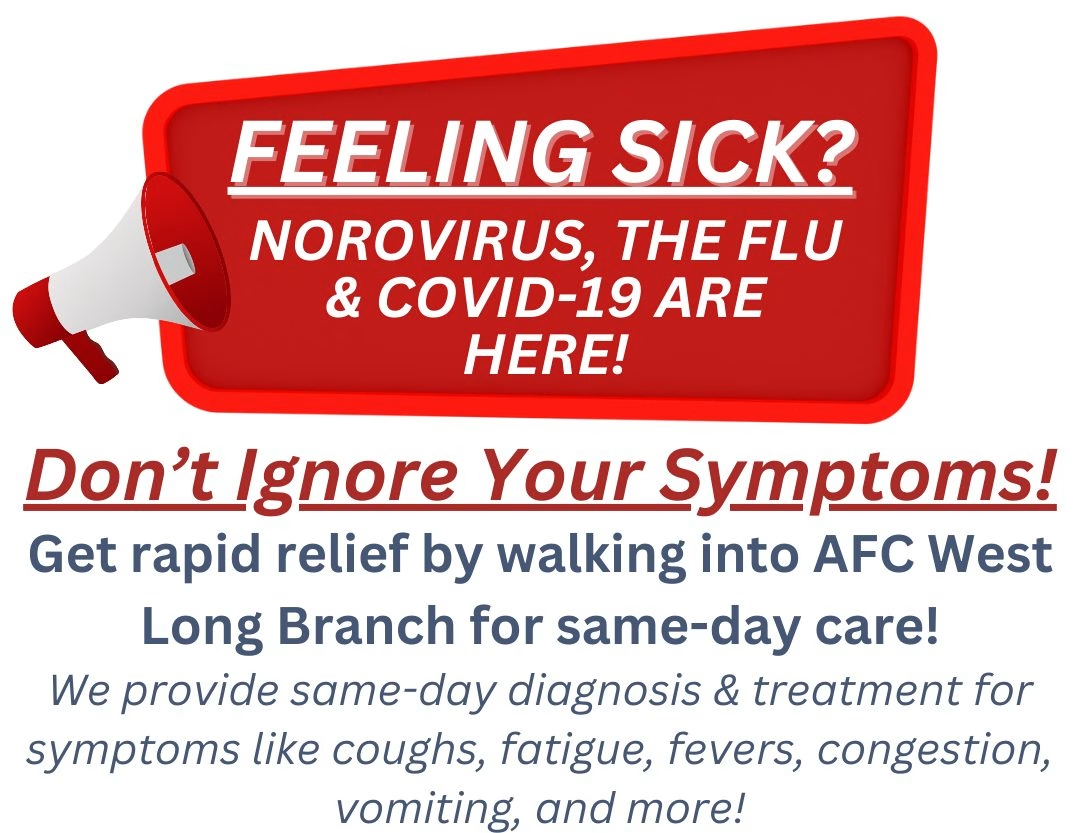During the fall season, cases of runny noses and sore throats tend to increase. These symptoms can occur due to a variety of conditions, including common colds and the flu. However, if you are experiencing a chronic case of the sniffles, you may be experiencing fall allergies. Fall allergy season often is overlooked, however, falling leaves can create airborne mold particles which can trigger allergy symptoms for many.
If you’re experiencing symptoms of fall allergies, AFC Urgent Care West Long Branch can help. Our walk-in urgent care clinic offers patients in West Long Branch, NJ same-day care with no need to schedule an appointment in advance. Simply walk into the clinic when it’s convenient for you.
What Triggers Fall Allergies
When you think of seasonal allergies, you may automatically think of the spring season. For many people, the spring season can bring severe seasonal allergy symptoms. However, allergy season can last from spring through the end of fall depending on what you’re allergic to. During the fall, leaves fall and rot on the ground. Stirring these up can release mold spores into the air. Mold is a very common allergen for many people. Similarly, fall plant season includes plants such as ragweed which can also lead to allergy symptoms.
Fall Allergy Symptoms
Fall allergy symptoms can easily be confused with symptoms of a cold. However, the treatment routines for both colds and allergies are completely different so correctly identifying your symptoms is important.
Common fall allergy symptoms include:
- Itchy, watery or red eyes
- Runny nose
- Congestion
- Sore throat
- Hives
A major distinction between fall allergy symptoms and illness symptoms is how your symptoms behave. While illness symptoms tend to linger or worsen over time, allergy symptoms come and go as you are exposed to allergens.
Treatment for Seasonal Allergies
If you’re experiencing symptoms of fall allergies, it is important to know how to properly manage your symptoms. Fall allergy season only ends once there is a hard frost. Treatment for seasonal allergies is typically very simple. First, it is important to seek a medical diagnosis to confirm what you’re allergic to. Then, your healthcare provider will advise you on the best treatment options for your symptoms. These may include taking antihistamines and directly treating symptoms with over-the-counter or prescription medications.
Visit AFC Urgent Care West Long Branch for Fall Allergy Symptom Care
Seasonal allergies can be frustrating to deal with. If you’re suffering from seasonal allergy symptoms this fall, you’re not alone. That is why AFC West Long Branch offers same-day symptom diagnosis and seasonal allergy care. Our clinic is conveniently located in West Long Branch, NJ and we are open 7 days a week. Our clinic maintains short wait times, making it easy for you to walk in and receive rapid care when it’s convenient for you. We accept most medical insurance plans and offer affordable care. Walk into the clinic today!



